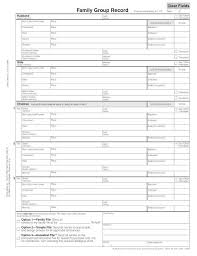Exploring the Sacred Roots: Unveiling LDS Ancestry Connections
The Importance of LDS Ancestry Research
Genealogy holds a special place within the beliefs and practices of the Church of Jesus Christ of Latter-day Saints (LDS). For members of the LDS faith, tracing their ancestry is not just a hobby but a sacred duty that connects them to their past and strengthens their sense of identity.
One of the key reasons why LDS ancestry research is so significant is its emphasis on family history. The LDS Church teaches that families can be together forever, both in this life and in the afterlife. By researching and documenting their family trees, LDS members believe they are fulfilling a spiritual mandate to honor their ancestors and ensure that future generations can benefit from their legacy.
Another important aspect of LDS ancestry research is the practice of performing proxy baptisms and other ordinances for deceased ancestors. According to LDS doctrine, these ordinances allow individuals who have passed away to accept or reject the teachings of Jesus Christ in the afterlife. By identifying and completing these ordinances for their ancestors, LDS members believe they are providing them with the opportunity for salvation.
Furthermore, LDS ancestry research promotes unity within families and communities. By uncovering stories of resilience, faith, and sacrifice from previous generations, individuals are inspired to emulate these qualities in their own lives. This shared connection to the past fosters a sense of belonging and solidarity among LDS members worldwide.
In addition to its spiritual significance, LDS ancestry research also has practical benefits. Through resources such as FamilySearch.org, a free genealogy website operated by the LDS Church, individuals can access a vast collection of records and tools to aid them in their research. This valuable resource has helped countless people discover unknown relatives, uncover hidden stories, and connect with others who share their heritage.
In conclusion, LDS ancestry research plays a vital role in preserving family histories, strengthening spiritual connections, and fostering unity among individuals with shared beliefs. By engaging in this meaningful pursuit, members of the LDS faith honor their ancestors, enrich their own lives, and create lasting bonds with future generations.
5 Essential Tips for Tracing Your LDS Ancestry
- Start by talking to older family members to gather information about your LDS ancestry.
- Utilize online genealogy websites and resources specific to LDS records, such as FamilySearch.org.
- Visit local LDS family history centers for assistance and access to additional resources.
- Join LDS genealogy groups or forums to connect with others who are also researching their ancestry.
- Keep detailed records of your research findings and sources for future reference.
Start by talking to older family members to gather information about your LDS ancestry.
To begin your journey into exploring your LDS ancestry, a valuable tip is to start by engaging in conversations with older family members. These individuals often hold a wealth of knowledge about the family’s history, traditions, and connections within the LDS community. By talking to older relatives, you can gather important details, stories, and insights that may not be documented elsewhere. Their firsthand accounts can provide a solid foundation for your ancestry research and offer a personal touch to understanding your familial roots within the LDS faith.
Utilize online genealogy websites and resources specific to LDS records, such as FamilySearch.org.
To delve deeper into LDS ancestry research, it is highly beneficial to leverage online genealogy websites and resources tailored to LDS records, such as FamilySearch.org. This invaluable platform offers a wealth of historical documents, family trees, and tools specifically curated for individuals tracing their LDS heritage. By utilizing these specialized resources, researchers can uncover vital information about their ancestors, connect with distant relatives, and further enrich their understanding of their familial roots within the context of the LDS faith.
Visit local LDS family history centers for assistance and access to additional resources.
For individuals interested in delving deeper into LDS ancestry research, a valuable tip is to visit local LDS family history centers. These centers serve as hubs of knowledge and support, offering assistance from experienced volunteers and access to a wealth of additional resources. Whether you are just starting your genealogical journey or seeking to overcome research hurdles, the knowledgeable staff at these centers can provide guidance, tools, and insights to help you uncover your family’s past. By taking advantage of the resources available at local LDS family history centers, researchers can enhance their genealogical pursuits and make meaningful connections to their heritage.
Join LDS genealogy groups or forums to connect with others who are also researching their ancestry.
Joining LDS genealogy groups or forums is a valuable tip for individuals interested in exploring their ancestry within the context of the Church of Jesus Christ of Latter-day Saints. By connecting with others who share a similar passion for family history research, individuals can exchange knowledge, resources, and support to enhance their genealogical journey. These groups provide a platform for collaboration, sharing insights, and overcoming research challenges together, ultimately fostering a sense of community and camaraderie among like-minded individuals striving to preserve their family heritage.
Keep detailed records of your research findings and sources for future reference.
It is essential for individuals engaged in LDS ancestry research to maintain meticulous records of their research findings and sources. By documenting each step of the research process and citing sources accurately, researchers can ensure the reliability and integrity of their work. Detailed records not only provide a clear roadmap of the research journey but also serve as valuable references for future analysis and collaboration. Keeping organized and thorough documentation is key to preserving family histories, sharing discoveries with others, and honoring the legacy of our ancestors within the LDS community.

